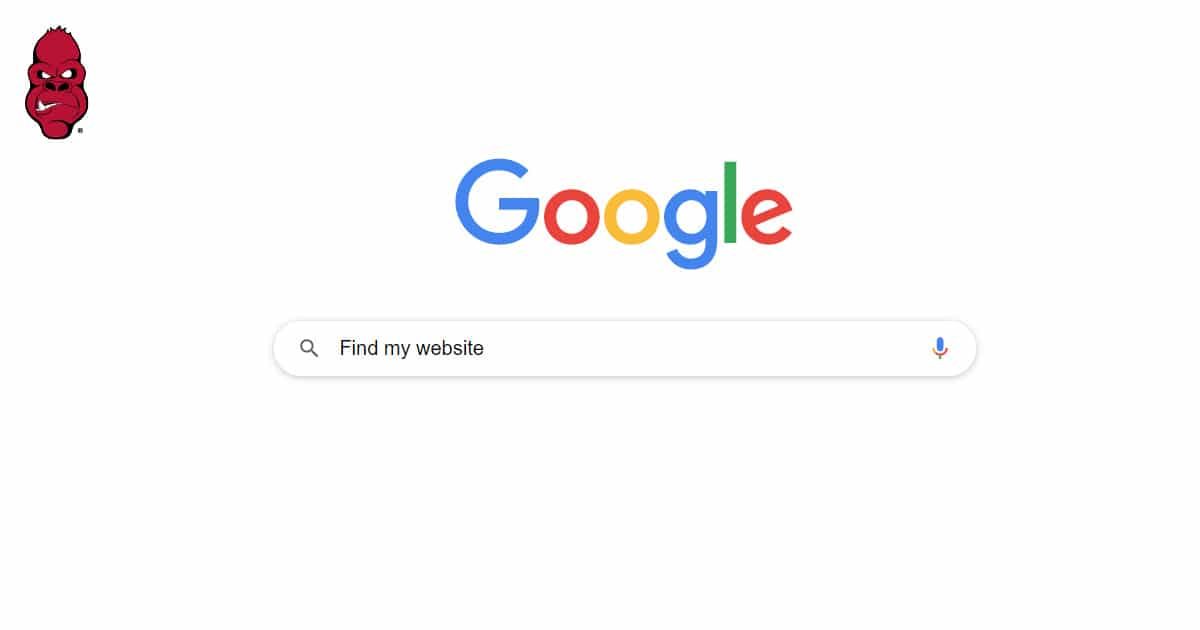It’s important to learn how to rank higher on Google if you want people to be able to find your content within the search engine results. When search engines like Google sift through the content online for your particular niche, you want them to recognize you as a relevant, high-quality source.
If you are able to establish yourself as a quality source of information, you may be placed higher on the search engine results. If you are creating a blog or a website for your business, you want to be at the top of Google’s rankings because that’s where people will see you and visit your blogs or websites. People don’t often search past the first page in Google.
So, how can you get search engines like Google to rank you well in the search results? The best way is to create quality content. This doesn’t mean you should just slap a few images on your website and engage with your readers, because there’s more to it than that. You need to offer your audience useful, valuable content that meets their needs.
One thing you should consider is SEO (search engine optimization) when blogging or writing pages for your website. If you can do it properly, there’s a good chance that Google will take notice – either through Google’s algorithm or its human monitors (the people who work for Google to find the most valuable content out there).
There are many factors that come into play when ranking on Google’s SERP (search engine results page). For example, you should understand keyword research, on-page SEO, title tags, meta descriptions, and how to use long-tail keywords.
Ultimately, Google wants users to find the best and most relevant content. If you can use tactics in the right way, Google will realize that you have the best content for users, and you will rank better.
How to Rank Higher on Google (Top Tips)
1. Get quality backlinks.
When a website with a good reputation links back to your website, Google sees the value and relevance that your site has to offer. This will help you rank better because search engines can see that other reputable sites are using you as a source.
2. Update your content regularly.
 While you should never have incorrect information, having old content is almost as bad. Show you can provide great content by making frequent changes, updating your content regularly, and providing fresh content. These things will move your Google ranking toward the top of the results page because you have something new to offer.
While you should never have incorrect information, having old content is almost as bad. Show you can provide great content by making frequent changes, updating your content regularly, and providing fresh content. These things will move your Google ranking toward the top of the results page because you have something new to offer.
3. Have a niche focus.
The more specific a topic that you decide to write about or cover, the better because it shows you have a solid understanding of the subject matter. The more you write about your niche, the better you will rank because it shows you have a clear grasp on a specific subject with each article you write and publish.
Continue to publish quality content on a regular basis to show the world that you have something new and interesting to say. The more you write on your niche, the greater your site will rank because you are demonstrating your expertise on the topic you are writing about. Always offer high-quality, accurate information to your audience.
4. Engage with your target audience.
Be sure to address people’s questions when they ask them in the comments section. For certain topics, you can best build your reputation by just providing essential information to your readers. Also, let people know when you have added new information. One way you can do this is by offering readers the chance to subscribe to your mailing list.
Providing a regular newsletter or email is a great means to tell your readers what’s new with your blog or website. Building a regular group of people who read your website shows you have a regular following and a steady source of traffic.
You can also increase engagement with polls, quizzes, images, social media shares, videos, and any other material that would help readers feel like they are part of your core group of followers. Interact with and write to your audience to show you care about the purpose of their visits to your website and blog.
Remember, you aren’t writing for Google; you are writing to real people who need to be interested in what you have to say. If they are not interested, they need to have a purpose for visiting your website, like purchasing a product or service.
One final tip for engaging with your reader is to provide useful, easy-to-understand content that gives readers the maximum benefits. This may mean you need to write longer content that gives your target audience lots of helpful information but doesn’t include fluff if it is not beneficial in some way.
5. Audit your website.
It’s important that you check for broken links and plagiarized or duplicate content. Always show originality with your content and illustrate the concepts of Google EAT (expertise, authority, and trustworthiness), as these are ranking factors.
You can show your expertise on your About page as you show off the reasons you know what you’re talking about. Your authority is the reason that you are qualified to speak about your niche. Trustworthiness is demonstrated by doing what you say you will do to your audience. If you promise a follow-up article, deliver on that promise.
6. Show your audience you are trustworthy.
 Have a good About page on your website, showing who you are and why you are writing about this niche. Write a blog post sharing your story, so your audience can better connect with you. Get third-party endorsements from reliable sources to show Google and other search engines that you are trustworthy.
Have a good About page on your website, showing who you are and why you are writing about this niche. Write a blog post sharing your story, so your audience can better connect with you. Get third-party endorsements from reliable sources to show Google and other search engines that you are trustworthy.
7. Make sure you have a beneficial purpose.
Make the purpose of your pages clear. You should have a beneficial purpose (laugh, sell, use, teach, or inform). What you feature on your site should be focused on your audience and what they need.
8. Invest in a positive reputation.
Make sure your company’s brand has a positive reputation. If too much negativity is associated with your company, Google will label you as a low-quality source. You can do this through positive reviews.
Also, provide a Contact Us page for your readers to see that there’s an actual person or organization behind what they are reading.
9. Build your credibility up.
Interact with influencers on social media. Influencers are highly reputable sources that provide credible information that most people consider to be trustworthy. If you find it difficult to reach out to an influencer, it may be because of the high volume of followers they have who also contact them regularly. Keep trying to connect with them.
Another means to become a credible source is to have your content featured on trusted platforms, like news sites and other authoritative web pages.
Demonstrating you are credible can be simple. On your Contact Us page, just show your physical address, phone number, and license numbers if applicable. If you don’t have all of that information, offer readers what you do have – something that shows you are a true company with values, real people behind it, and a backstory.
10. Show you are an authority on your topic.
Be a reliable expert on your topic pages, showing you know what you’re talking about. One thing you can do is rid your site of low-quality content listed on your website. You don’t need to have a page full of fluff; be both concise and thorough with the information you present on your web page.
Show off badges, accolades, and certifications that show your expertise and knowledge. You could do this both on your Home page and About page – whichever showcases your information the best.
11. Link to credible sources.
You will have a better chance at ranking higher if you link to highly authoritative websites. When you do link to outside sources, use only the ones that are credible and relevant to your niche. Link building, the process of getting hyperlinks from other sources, may help you get great backlinks, which will also help things.
When you do use outside sources for information in your articles, make sure you link to the data or give credit where credit is due. Never “borrow” information from another site without crediting them properly.
A Final Note on Keywords
When implementing SEO tactics, you will discover the need for keyword research, how to find your target keyword, and where to place each keyword to maximize the value of your words. However, it’s very important not to keyword stuff, the process of overusing keywords in an effort to get a higher ranking.
Keyword placement is very important but equally important is how many times you put keywords in your content. Making SEO adjustments is a great idea, but you need to do it right and not try to cram keywords in your content with the hope that Google will see the keywords and rank you higher because you used so many.
It doesn’t work that way with SEO and keyword placement. Your keywords should be spread out in your articles, and you should never overuse one keyword. That type of SEO tactic is actually detrimental and should not be practiced. One of the greatest ways to do proper keyword placement is with the help of an SEO tool or an SEO specialist.
To Sum Things Up…
Improve your Google search ranking by using keywords the right way and following the suggestions in this article. Do you need help or further explanation? We are here to help! We can improve where you rank on Google’s SERP or figure out why your ranking isn’t improving. With an SEO expert at Angry Ape Creative, you may be able to be placed on the first page of Google.
Do you need help with content marketing, link building, or SEO strategies on your site? Enlist the help of Angry Ape Creative, who can help you achieve organic traffic with SEO tactics, such as keyword research. We also specialize in graphic design, marketing strategies, and website creation. We make small business a big deal!
Jay Bilunas is a graphic designer and marketing consultant. He loves helping small businesses succeed with great marketing and design. He also teaches and tries to help up and coming designers.
- Jay Bilunashttps://angryape.com/author/angryape/
- Jay Bilunashttps://angryape.com/author/angryape/
- Jay Bilunashttps://angryape.com/author/angryape/
- Jay Bilunashttps://angryape.com/author/angryape/







-300x158.png)


